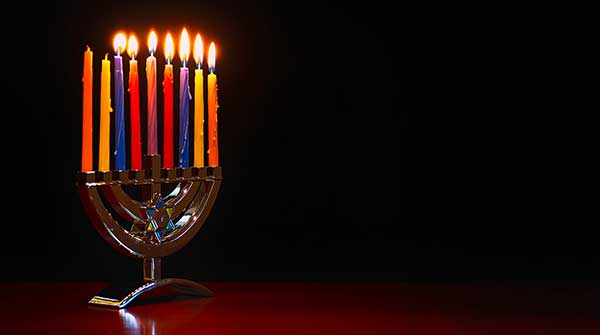The reversal of the decision not to display the menorah on city property raises questions about how Moncton city council makes its decisions
 Any person of common sense and human decency can accept the reversal of Moncton city council’s decision not to display a menorah on city property.
Any person of common sense and human decency can accept the reversal of Moncton city council’s decision not to display a menorah on city property.
But the reasons the council now presents and the circumstance of the first decision should be closely scrutinized. Dawn Arnold, the Moncton Mayor, told members of the Jewish community that her decision not to display the menorah was made to comply with a Supreme Court ruling. The Mayor deliberately gave the impression that she acted on legal principles.
But it turns out that the decision was made on the advice of city bureaucrats and lawyers seeking to advance “equity and inclusion.” Reportedly, the same people advised the council to vote and decide in secret.
The incident should not end there. There are still many things that do not fit well. Moncton residents and the New Brunswick government need to ask some questions:
- By this time, one would expect Mayor Arnold’s nose to have grown a few inches. Why did the Mayor publically lie about the initial reasons for not putting the menorah on display?
- The Mayor and some council members seem to excuse their decision by revealing that they acted on the recommendations of city lawyers and bureaucrats. If true, it does not relieve elected officials from their key responsibility to use their judgment for public decisions. The excuse of simply following recommendations does not fly.
- The advice elected officials allegedly received was to stop displaying the menorah to keep up with wokeness about “equity and inclusion.” There is some amusement here that the woke politicians and bureaucrats are hoisted by their petards, but the underlying failures are serious.
- One of the core failures in the matter is that no bureaucrat or elected official seems to have pointed out that the move for inclusion excluded and hurt people. In light of what has happened in the last two months in Canada and across the world, cancelling Jews in the name of inclusion is absurdly tone-deaf and not easily believable.
- The initial claim that the refusal to display the Jewish symbol was due to a Court ruling suggests an attempt to hide that the decision was driven by the ideology of equality and inclusion.
- If “equity and inclusion” are such great things, why hide them as the motivators for the decision?
- Concerning secret dealings, here lies the key problem: regardless of which fabricated excuse from the council one might believe, their initial decision was carried out unlawfully and illegitimately behind closed doors. This action contradicts their own stipulated rules of conducting affairs openly and directly in the public gaze.
- The council members sought to explain their actions, blaming staff for recommending secretive practices. They should have, however, questioned how city staff and legal advisors could lead them into breaking their own rules.
- Is it not peculiar how the Mayor defended the choice by referring to external court principles while overlooking their own internal rules? This a blatant case of hypocrisy, to be sure, but rules were broken.
- Voters must realize that the other follow-up reason behind Moncton’s refusal to display the menorah – preventing potential vandalism and subsequent distress to the Jewish community – is quite deceptive. This logic implies that the Moncton officials and council members sought to protect Jews by actions that, unfortunately, ended up causing them distress.
- But if it were true that the decision was condescendingly made to spare Jews, why not cite it from the start? And what does that say about Moncton’s confidence in their local policing?
- Lastly, the New Brunswick government needs to ask what else Moncton city council has adopted or would be willing to adopt behind the backs of residents using the excuse of sparing them pain and discomfort.
In each of my few visits to Moncton, I met and interacted with common citizens and members of the local business community. They were proud that Moncton was growing rapidly; they were proud of their entrepreneurial spirit – palpably stronger in Moncton than in other places I visited in New Brunswick. My last visit was six or more years ago, and Moncton has grown even more since then.
The resourceful residents of Moncton deserve much more integrity from their council than they’re currently getting. It’s unfair to brand them all as intolerant based on the poor decisions of a few. The council’s actions are tinged with hues of dishonesty and manipulation, suggestive of an elected body lacking a solid ethical norm.
Ultimately, a council willing to violate its own rules deserves a scrutinizing look. The New Brunswick Ministry of Municipal Affairs – responsible for ensuring that municipalities in New Brunswick are governed effectively and by provincial legislation and policies – owes it to the province to investigate how that happened.
Marco Navarro-Génie is the founding president of the Haultain Research Institute. He is co-author, with Barry Cooper, of Canada’s COVID-19: The History of a Pandemic Moral Panic.
For interview requests, click here.
The opinions expressed by our columnists and contributors are theirs alone and do not inherently or expressly reflect the views of our publication.
© Troy Media
Troy Media is an editorial content provider to media outlets and its own hosted community news outlets across Canada.


